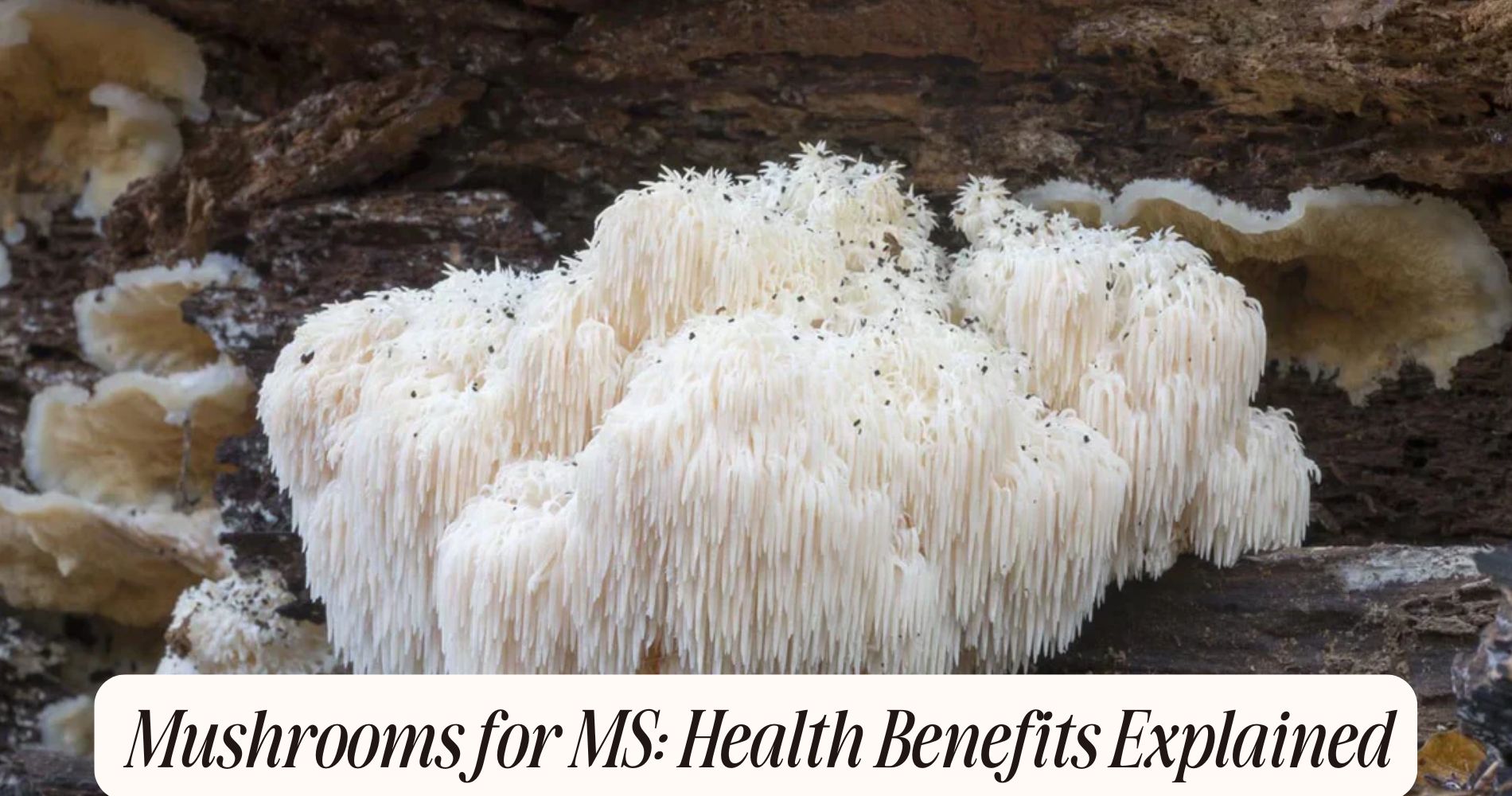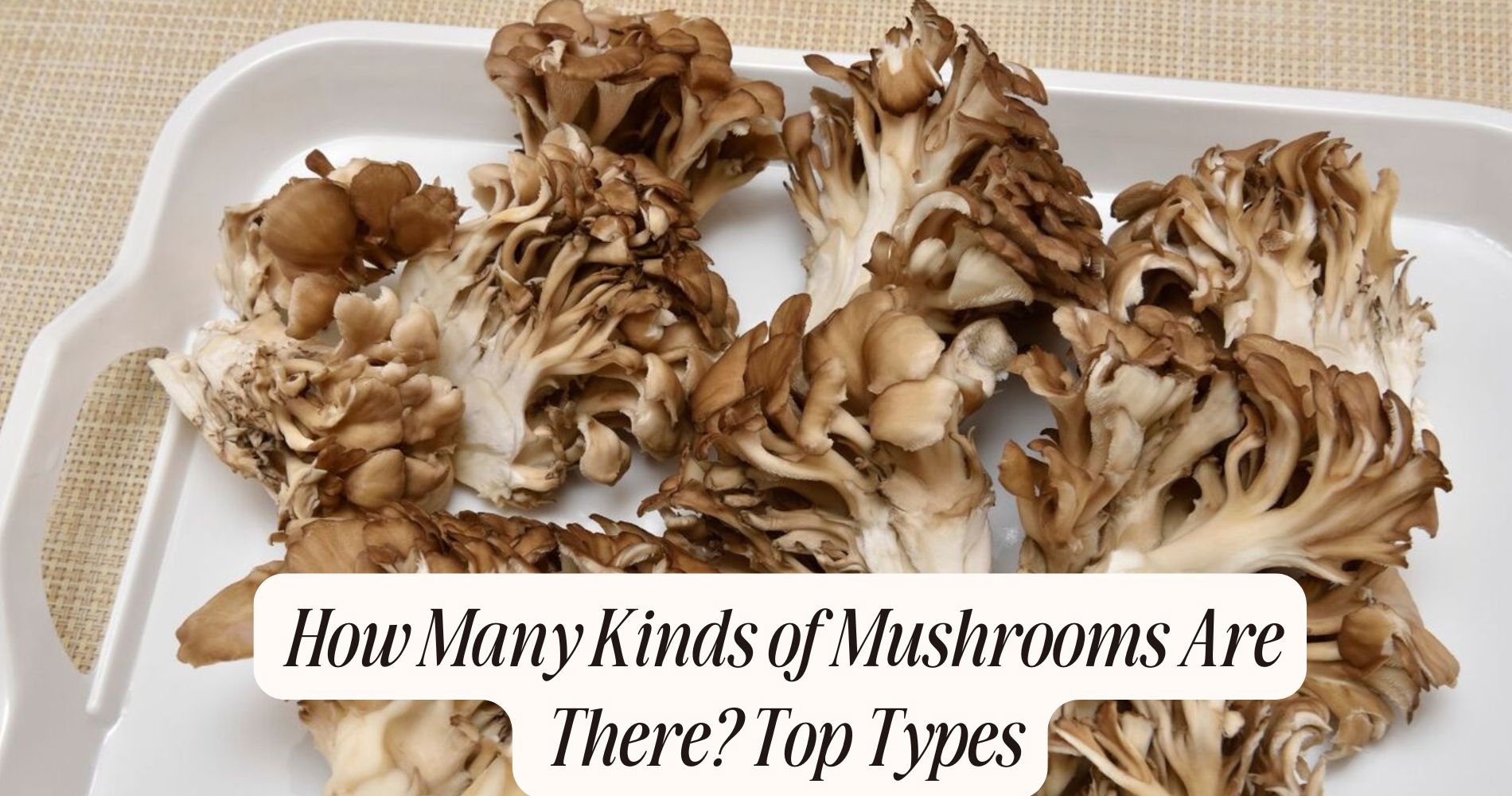
Mushrooms for MS: Health Benefits Explained
Overview of Multiple Sclerosis
Multiple sclerosis (MS) is a chronic autoimmune disorder characterized by the immune system mistakenly attacking the protective myelin sheath surrounding nerve fibers in the central nervous system. This demyelination leads to a range of neurological symptoms, including fatigue, motor dysfunction, sensory disturbances, and cognitive impairment.
As a person living with MS, understanding the disease's progression and symptomatology is crucial for effective symptom management.
To optimize your quality of life, lifestyle modifications play a critical role. Regular physical activity can improve mobility and reduce fatigue, while stress management techniques, such as mindfulness or yoga, may enhance emotional well-being.
Additionally, maintaining a balanced diet, rich in anti-inflammatory foods, can support overall health and potentially alleviate some MS symptoms.
You should also consider working closely with healthcare professionals to develop a personalized symptom management plan that incorporates pharmacological and non-pharmacological strategies.
Individual responses to treatments can vary, making it essential to monitor and adjust your approach continuously.
Nutritional Profile of Mushrooms
What makes mushrooms a valuable addition to your diet, especially for those managing chronic conditions like multiple sclerosis? The nutritional profile of various mushroom varieties reveals a wealth of benefits. Rich in vitamins such as B vitamins (including riboflavin, niacin, and pantothenic acid) and D, mushrooms support metabolic processes and immune function.
They're also an excellent source of minerals like selenium, copper, and potassium, which are essential for cellular health and maintaining fluid balance.
Mushrooms contain essential amino acids, providing a plant-based protein source. Their low-calorie content, high fiber, and unique polysaccharides contribute to digestive health while promoting satiety, making them a smart choice for those managing weight.

Additionally, the antioxidant properties found in certain mushroom varieties, such as shiitake and maitake, support oxidative stress reduction.
Incorporating mushrooms into your culinary uses enhances both flavor and nutrition. Whether you're sautéing, roasting, or incorporating them into soups and salads, these fungi offer versatility while enriching your meals with their nutrient density.
Key Health Benefits of Mushrooms
Mushrooms consistently offer a range of health benefits that can be particularly advantageous for individuals managing multiple sclerosis. These benefits stem from their rich bioactive compounds that may modulate inflammation, support immune function, and enhance overall well-being.
Research indicates that certain mushroom varieties, such as shiitake and reishi, contain polysaccharides that can stimulate immune response and may exhibit neuroprotective properties.
Incorporating mushrooms into your diet through various cooking methods can maximize these health benefits. Sautéing, roasting, or incorporating them into soups can enhance their bioavailability, facilitating the absorption of nutrients. Additionally, mushrooms are low in calories and high in fiber, making them suitable for maintaining a healthy weight, which is essential for those with MS.
Moreover, the antioxidant properties found in mushrooms can help combat oxidative stress, a significant factor in MS progression.
Types of Mushrooms for MS
Exploring various types of mushrooms can greatly enhance your dietary approach to managing multiple sclerosis. Shiitake mushrooms, known for their immune-boosting properties, offer significant shiitake benefits, including enhanced cardiovascular health and potential anti-cancer effects.
Reishi mushrooms, often referred to as the "mushroom of immortality," exhibit reishi effects such as stress reduction and immune system modulation, which may prove beneficial for MS management.
Lion's mane is particularly remarkable for its neuroprotective properties. Research suggests that it stimulates nerve growth factor (NGF) synthesis, potentially aiding in cognitive function.

Cordyceps uses extend to energy enhancement and improved physical performance, which could be advantageous for combating fatigue often experienced in MS.
Oyster mushrooms are rich in antioxidants and provide essential nutrients, contributing to overall well-being.
Maitake mushrooms, with their maitake properties, have shown promise in regulating blood sugar levels and enhancing immune function.
Each of these mushrooms contributes unique benefits that may support your health journey, making them valuable additions to your diet as you navigate the complexities of multiple sclerosis.
Anti-Inflammatory Properties
Mushrooms contain several natural anti-inflammatory compounds that can greatly modulate immune responses.
Research indicates that these bioactive substances not only reduce inflammation but also provide neuroprotective effects, essential for managing MS symptoms.
Understanding these properties can help you appreciate the potential therapeutic role of mushrooms in your treatment regimen.
Natural Anti-Inflammatory Compounds
When considering natural anti-inflammatory compounds, mushrooms emerge as a remarkable contender due to their rich phytochemical profile. Various mushroom varieties, such as reishi, shiitake, and lion's mane, are known for their potent anti-inflammatory mechanisms. These fungi contain bioactive compounds, including polysaccharides, triterpenes, and flavonoids, which work synergistically to reduce inflammation.
Research indicates that polysaccharides like beta-glucans can modulate immune responses, inhibiting pro-inflammatory cytokines while promoting the production of anti-inflammatory mediators.
Triterpenes, particularly in reishi mushrooms, exhibit strong anti-inflammatory effects by suppressing the activation of nuclear factor-kappa B (NF-kB), a key regulator of inflammation. Additionally, the presence of ergothioneine, a powerful antioxidant found in some mushroom varieties, contributes to reducing oxidative stress, further mitigating inflammation.

Incorporating these mushrooms into your diet may enhance your body's natural ability to combat inflammation. Regular consumption can lead to a reduction in inflammatory markers, potentially alleviating symptoms associated with conditions like multiple sclerosis.
Impact on Immune Response
The anti-inflammatory properties of mushrooms greatly influence the immune response, making them a valuable addition for those looking to manage conditions like multiple sclerosis. Research indicates that various fungi varieties, such as reishi and shiitake, exhibit significant immune modulation capabilities. These mushrooms contain bioactive compounds like polysaccharides and triterpenes that enhance the body's ability to regulate inflammatory processes.
When you consume these mushrooms, they can help normalize immune system activity, potentially reducing the overactive inflammatory responses often seen in autoimmune disorders. This immune modulation is vital for individuals with MS, as excessive inflammation can exacerbate symptoms and lead to further neurological damage.
Studies have shown that components such as lentinans in shiitake mushrooms can stimulate the production of anti-inflammatory cytokines, promoting a balanced immune response.
Incorporating mushrooms into your diet may not only provide direct anti-inflammatory effects but also support overall immune health. The potential of these fungi varieties in managing immune-related conditions underscores their importance as a dietary supplement, encouraging research into their mechanisms and therapeutic applications for conditions like MS.
Neuroprotective Effects of Mushrooms
Neuroprotection is imperative for individuals with multiple sclerosis, and certain mushrooms play a key role in providing this benefit through their anti-inflammatory properties. Research indicates that specific mushroom varieties, such as Lion's Mane and Reishi, contain bioactive compounds that modulate inflammatory pathways, thereby reducing neuroinflammation.
These compounds, including polysaccharides and triterpenoids, have been shown to inhibit pro-inflammatory cytokines, which are essential in the pathogenesis of MS. By mitigating this inflammation, these mushrooms support brain health and enhance neuronal survival.
Furthermore, the antioxidant properties of these mushroom varieties help combat oxidative stress, a significant contributor to neurodegeneration in MS. Studies also suggest that the neuroprotective effects of mushrooms can foster neurogenesis, promoting the repair of damaged neural tissue.
Incorporating these mushrooms into your diet could be a strategic approach to enhance your overall neurological resilience. Continued research is critical to fully elucidate the mechanisms at play, but existing evidence strongly supports the potential of mushrooms as a complementary therapy for managing MS symptoms.
Antioxidant Effects on the Body
While many may not realize it, antioxidants play an essential role in mitigating oxidative stress within the body, which is particularly significant for individuals with multiple sclerosis (MS). Oxidative stress is a condition characterized by an imbalance between free radicals and antioxidants, leading to cellular damage. Consuming antioxidant-rich foods, such as certain mushroom varieties, can help counteract this imbalance.
Mushrooms are notable antioxidant sources, containing compounds like ergothioneine and glutathione. These compounds scavenge harmful free radicals, reducing oxidative stress and potentially alleviating some MS symptoms. Research has shown that specific mushroom varieties, like shiitake and maitake, boast higher antioxidant levels compared to others, making them particularly beneficial for those looking to enhance their dietary intake.

Incorporating these mushrooms into your meals can provide a dual benefit: not only do they serve as a delicious addition to your diet, but they also contribute to your overall health by protecting your cells from oxidative damage.
Immune System Support
Mushrooms' unique compounds can play an essential role in bolstering your immune system, particularly for those managing multiple sclerosis (MS). Various mushroom varieties, such as shiitake, maitake, and reishi, contain bioactive compounds that contribute to immune modulation.
These compounds, including polysaccharides like beta-glucans, enhance the activity of immune cells such as macrophages and natural killer cells, which are important for defending against pathogens.
Research indicates that these mushrooms can help regulate cytokine production, balancing pro-inflammatory and anti-inflammatory responses, which is particularly significant for individuals with MS who may experience dysregulation of the immune system.
By incorporating these mushroom varieties into your diet, you're not just nourishing your body but also potentially improving your immune resilience.
Moreover, the adaptogenic properties of certain mushrooms can help your body adapt to stress, further supporting immune health.
As you consider your nutritional approach to managing MS, focusing on the immune-modulating effects of mushrooms may offer substantial benefits.
Emphasizing the integration of these powerful fungi into your diet can lead to a more balanced immune response, ultimately enhancing your overall well-being.
Enhancing Cognitive Function
Mushrooms possess neuroprotective properties that can greatly benefit cognitive function in individuals with MS.
Research indicates that specific compounds found in mushrooms may support cognitive health by reducing oxidative stress and inflammation in neural pathways.
Neuroprotective Properties of Mushrooms
Neuroprotective agents found in various mushroom species have garnered attention for their potential to enhance cognitive function, particularly in individuals with multiple sclerosis (MS). Research indicates that certain mushroom varieties, such as Lion's Mane (Hericium erinaceus) and Reishi (Ganoderma lucidum), exhibit neuroprotection mechanisms that may mitigate neuronal damage and promote regeneration.
Lion's Mane, for instance, contains compounds like hericenones and erinacines, which stimulate nerve growth factor (NGF) synthesis. This process is essential for the survival and growth of neurons, potentially improving cognitive performance in MS patients.

On the other hand, Reishi's bioactive constituents, particularly triterpenes and polysaccharides, have shown promise in reducing oxidative stress and inflammation, contributing to neuronal health.
Moreover, the immunomodulatory properties of these mushrooms may further support cognitive function by maintaining a balanced immune response, imperative for individuals with MS.
Cognitive Health Support Mechanisms
Enhancing cognitive function in individuals with multiple sclerosis (MS) involves a multifaceted approach that leverages various biological mechanisms. Research suggests that certain mushrooms, particularly those rich in bioactive compounds, can contribute to cognitive enhancement through neuroprotective effects.
For instance, compounds like ergothioneine and polysaccharides found in mushrooms may facilitate neuronal survival and promote synaptic plasticity, which is essential for memory improvement.
Additionally, mushrooms such as Lion's Mane have been shown to stimulate the production of nerve growth factor (NGF), which plays a crucial role in neuronal health and cognitive function. By supporting the regeneration of neurons and enhancing communication between them, these mushrooms may counteract cognitive decline associated with MS.
Moreover, the anti-inflammatory properties of mushrooms may help mitigate chronic inflammation, a common issue in MS that can adversely affect cognitive abilities. By reducing neuroinflammation, you could potentially experience improvements in attention, processing speed, and overall cognitive clarity.
Incorporating these mushrooms into your diet mightn't only provide nutritional benefits but also serve as a strategic component in your cognitive health management plan.
Incorporating Mushrooms Into Your Diet
Incorporating a variety of mushrooms into your diet can be a powerful way to harness their potential benefits for managing multiple sclerosis (MS). Research indicates that mushrooms like shiitake, maitake, and reishi possess immune-modulating properties, which may enhance overall health.
Start by integrating these mushrooms into your meals; for instance, shiitake mushrooms can be sautéed with garlic and added to stir-fries, while reishi can be brewed into a tea.

To maximize their health benefits, consider dietary tips such as pairing mushrooms with vitamin C-rich foods, which can enhance nutrient absorption. You might also explore mushroom recipes that utilize diverse cooking methods—grilling, roasting, or even blending them into soups. This variety not only enhances flavors but also helps you consume a broader spectrum of nutrients.
Additionally, purchasing mushrooms from reputable sources guarantees you're getting the highest quality, as some types may contain beneficial compounds that vary based on cultivation practices.
Experimenting with different mushroom varieties can add depth to your diet while supporting your health in managing MS. Remember, consistent inclusion of mushrooms in your meals may yield cumulative benefits over time.
Potential Risks and Considerations
While mushrooms offer numerous health benefits, it's important to recognize potential risks and considerations when including them in your diet, especially for individuals with multiple sclerosis (MS). One primary concern is the possibility of allergic reactions. Some individuals may develop hypersensitivity to specific mushroom species, leading to symptoms such as gastrointestinal distress, skin rashes, or respiratory issues.
If you notice any adverse effects after consuming mushrooms, it's vital to consult a healthcare professional.
Another significant factor is medication interactions. Certain mushrooms, particularly medicinal varieties like reishi or cordyceps, can influence the metabolism of medications you might be taking. For instance, they may either enhance or inhibit the effects of immunosuppressants or anticoagulants.
This can alter the efficacy of your prescribed treatment plan, posing a risk to your health.
Moreover, the potential for contamination with harmful substances, such as heavy metals or toxins, exists if mushrooms are sourced from unreliable suppliers. Always verify you're purchasing from reputable sources.
Boost Your Wellness with Well Gummies SUPER MUSHROOM GUMMIES
Looking for a simple way to incorporate mushrooms for MS into your routine? Well Gummies SUPER MUSHROOM GUMMIES are a convenient and delicious option. Packed with ten functional mushrooms, these vegan gummies support immune health, provide steady energy, and enhance mental clarity—all in a tasty, easy-to-use gum chew form.
With a refreshing wild berry flavor, they’re as enjoyable as candy, with no jitters or crashes. Try Well Gummies today to naturally boost your wellness and support a balanced body and mind!
Frequently Asked Questions
Can Mushrooms Interact With MS Medications?
Mushroom compounds may interact with MS medications by influencing immune modulation. It's essential to consult your healthcare provider before combining them, as the effects on treatment efficacy and safety aren't fully understood in existing research.
Are There Any Specific Mushroom Supplements Recommended for MS?
When considering mushroom supplements for MS, you might explore medicinal mushrooms like Reishi, Lion's Mane, and Cordyceps. These mushroom varieties show promise in research for supporting immune function and neurological health, but consult a healthcare professional first.
How Should Mushrooms Be Prepared for Maximum Benefits?
To maximize mushrooms' nutritional value, utilize cooking methods like sautéing or steaming. These techniques enhance bioavailability, allowing your body to absorb beneficial compounds more effectively, while preserving essential nutrients and flavors for ideal health benefits.
Are There Any Mushroom Safety Concerns for MS Patients?
Yes, you should be aware of mushroom toxicity when consuming mushrooms. Guarantee safe consumption by sourcing them from reputable suppliers and avoiding wild varieties, which may pose health risks, especially for individuals with MS.
Can Individuals With Allergies Consume Mushrooms Safely?
If you have mushroom allergies, you shouldn't consume mushrooms, as symptoms like hives or difficulty breathing can occur. Always consult a healthcare professional to identify safe mushroom varieties that won't trigger your allergies.
Conclusion
Incorporating mushrooms into your diet can offer significant health benefits for individuals with multiple sclerosis. Their anti-inflammatory properties and ability to support the immune system may enhance overall well-being. Additionally, certain types of mushrooms can potentially improve cognitive function, which is vital for those managing MS. However, it's important to take into account potential risks and guarantee you're consuming the right varieties. Always consult with a healthcare professional to tailor your dietary choices effectively.




